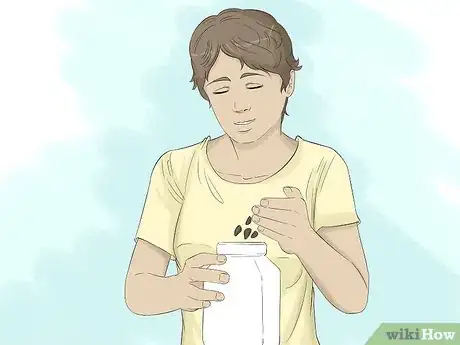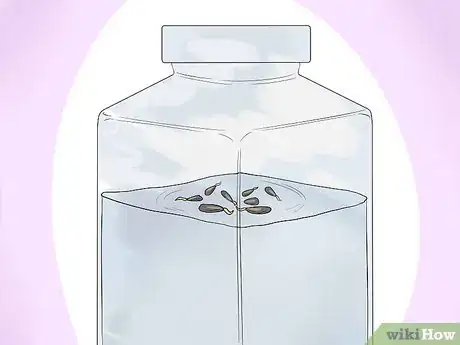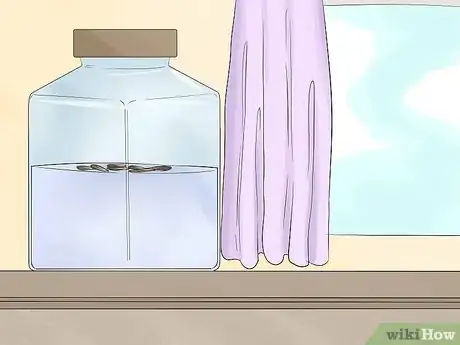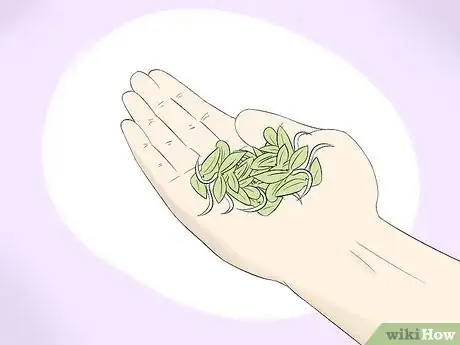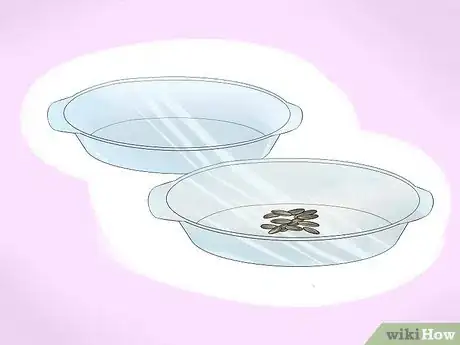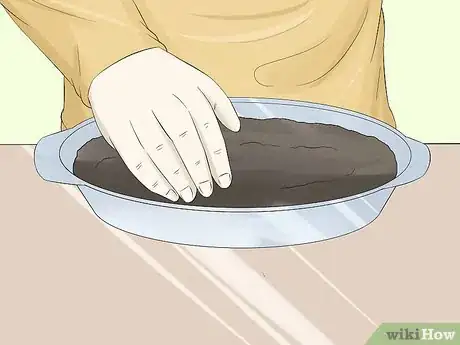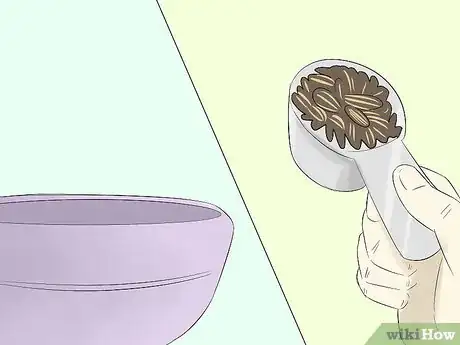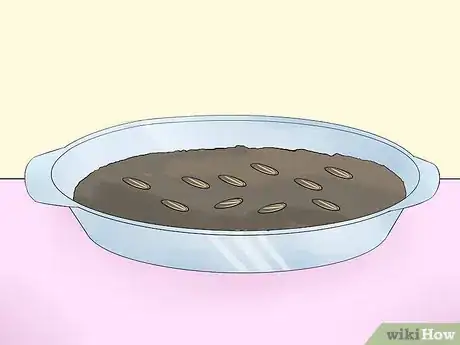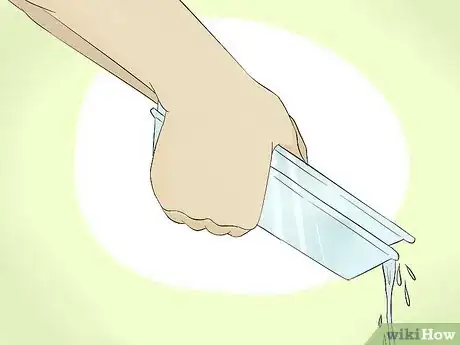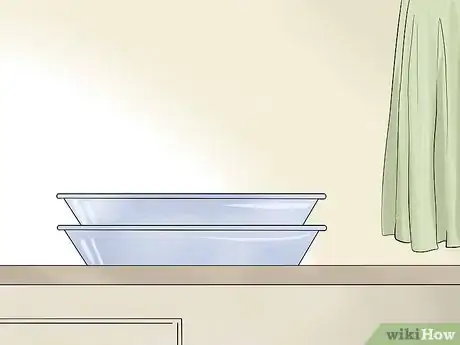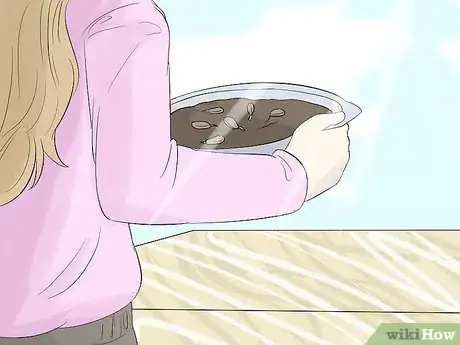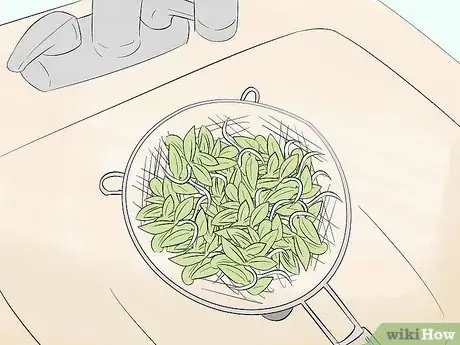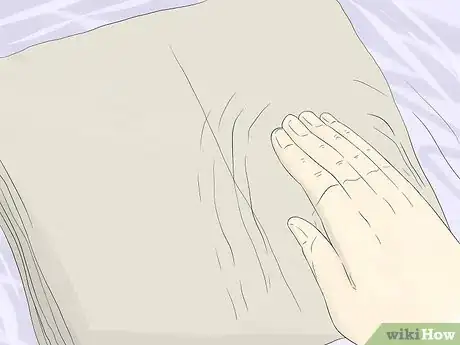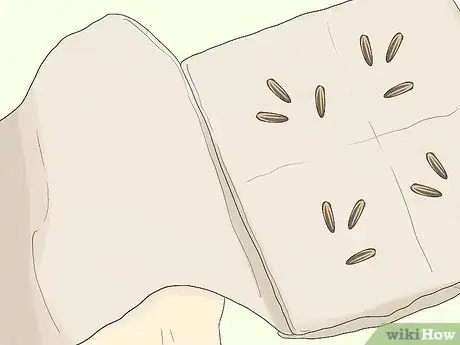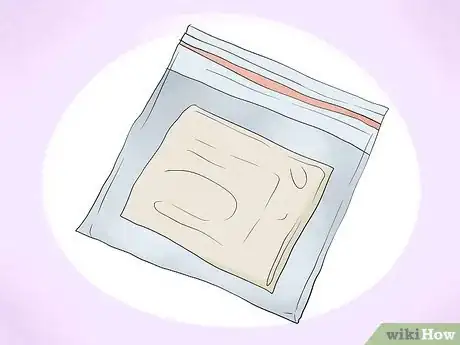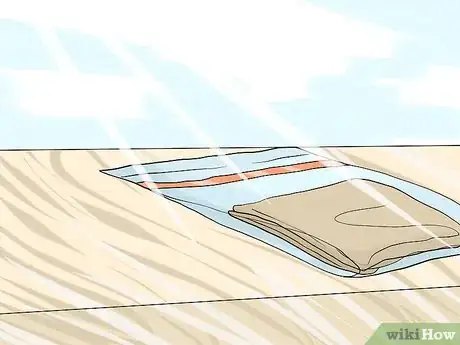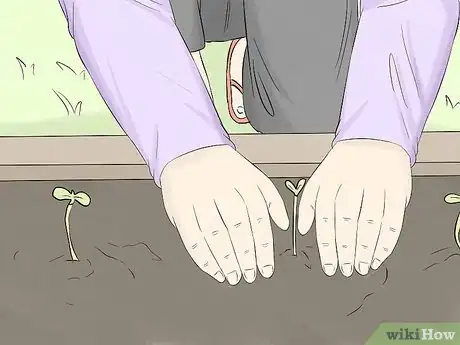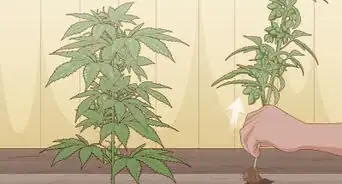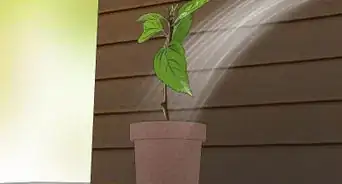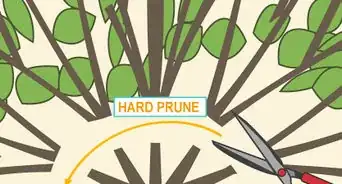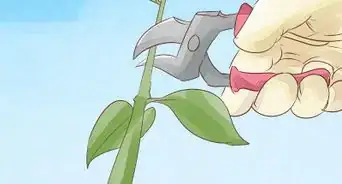This article was co-authored by Andrew Carberry, MPH. Andrew Carberry is a Food Systems Expert and the Senior Program Associate at the Wallace Centere at Winrock International in Little Rock, Arkansas. He has worked in food systems since 2008 and has experience working on farm-to-school projects, food safety programs, and working with local and state coalitions in Arkansas. He is a graduate of the College of William and Mary and holds a Masters degree in public health and nutrition from the University of Tennessee.
wikiHow marks an article as reader-approved once it receives enough positive feedback. In this case, 91% of readers who voted found the article helpful, earning it our reader-approved status.
This article has been viewed 225,003 times.
Like many seeds, sunflower seeds can be made to sprout in order to produce a healthy source of nutrients. Proper sprouting depends on a variety of factors: temperature, water volume and time. The process is easy and can be used to grow sprouts, greens, or germinate seeds. Tweak your sprouting process to accommodate for changes in weather and humidity, and to produce the types of sprouts you want.
Steps
Growing Sprouts
-
1Buy or gather some raw, unsalted, hulled sunflower seeds. Hulled sunflower seeds — those without shells — will sprout more quickly. If you can only gather unhulled sunflower seeds, collect these in a bowl and allow them to soak overnight. In the morning, toss the seeds then pour them into a strainer. Try to pick out hulls as you go. Do not worry if some hulls remain.
-
2Place the seeds in a jar. Place the sunflower seeds in a large, open-mouth jar such as a canning jar or something slightly larger.Advertisement
-
3Add water. Fill the jar with water so that the seeds float on top.
-
4Allow the jar to sit for about eight hours. During this period, the seeds should begin to sprout. Wait until the seeds have nearly doubled in size and the sprout has begun to emerge. When sprouting sunflower seeds, always periodically check them so that you do not allow them to soak for too long.
-
5Rinse and return them to the jar. Make sure to cover the jar again.
-
6Wait. Let them sit in the jar, in a warm or room temperature location with no direct sunlight, for one to three days until they've finished sprouting. Rinse them and return them to the jar one or two times a day until they are done.
- You can also use a special sprouting bag instead of the original jar. Place the sprouting seeds into the sprouting bag and hang it over a sink or other area to allow draining. Continue to rinse every five hours or so.
-
7Enjoy! When they've started to sprout and look like little V's, they're ready to eat. Rinse the sprouts you plan to eat and store the remaining sprouts in your refrigerator to enjoy later.
Growing Greens
-
1Get your supplies. You'll need black oil sunflower seeds, glass pie dishes (at least two), and some healthy soil from your local garden store (preferably organic).
-
2Make your sprouting area. Take one of your glass pie dishes and fill it with soil until it is just below the crust lip.
-
3Soak your seeds. Take a 1/4 cup of seeds and soak them in a bowl of water, completely covered in water, for 8 hrs.
-
4Add the seeds to the soil. Spread the seeds across the soil and then water them thoroughly.
-
5Place the second pie dish on top of the soil. Place the bottom surface of the second pie plate on top of the soil, as if you were nesting the plates. Press down and drain the excess water.
-
6Wait. Store your sprouting seed (with the second pie dish still on top) in a warm, dark place. Wait about three days, but check on them every day. When the upper plate is lifted about an inch, remove it from the dark place.
-
7Place them in the sun. Remove the upper plate and place the sprouts in a sunny location.
-
8Eat them when they're ready. When they're ready to be eaten, cut the sprouts and rinse them to get rid of the shells. From the time you take them into the sun, it takes roughly another two days for them to be ready to eat. Shorter if it's very warm where you live. Try them in salads, sushi, soup, or sandwiches. Enjoy!
Germinating for Gardening
-
1Consider sprouting or growing greens. Either method will work for germinating sunflowers for planting, but you can also use the traditional plant germinating method that follows. Sunflowers are notoriously difficult to get to grow straight in their final location and are a favorite snack for birds. Sprouting them before planting might improve your chances of keeping them alive.
-
2Soak some paper towels. Mist several paper towels in water with a bit of plant food mixed in. The towels should be wet but not soaked and difficult to handle.[1]
-
3Place seeds in the towel. Place a couple of seeds in the towel with space between them and fold the paper towel up so that they are covered.
-
4Place the paper towel in a plastic bag. Give the paper towel a few more drops of water and place it in a resealable plastic bag (such as a Zip-loc bag). Seal it most of the way, with just a small, ~1" gap at the center.
-
5Set in the sunlight. Set the bag in the sunlight and give the seeds time to germinate.
-
6Plant when they are ready. Plant when they have sprouted, making sure to place them in soil with a pH between 6.5 and 7. Sunflowers need full sunlight to grow. Consider planting them along a fence or your house, or behind some sturdy trees, to shield them from the wind.
- Keep in mind that sunflowers planted in pots will not grow as big as sunflowers planted in the ground.
- Sunflowers are drought-tolerant, but you should ensure they get plenty of water while they establish their roots. They can also survive in wet, humid weather, but you will need to make sure they are planted in well-draining soil, like a sand or loam mixture.[2]
Community Q&A
-
QuestionI have some unhulled sunflower seeds. Should I hull them, or is that not my variety?
 Alex SaminCommunity AnswerI would say that isn't your variety. I mean you can always try, but it's better to be safe than sorry. Also, rather than taking the chance, plant them in pots and they will grow in about 1-2 weeks!
Alex SaminCommunity AnswerI would say that isn't your variety. I mean you can always try, but it's better to be safe than sorry. Also, rather than taking the chance, plant them in pots and they will grow in about 1-2 weeks! -
QuestionWhat happens if I soak the sunflower seeds too long?
 Alex SaminCommunity AnswerIt will become leggy, lose its strength and ultimately die or break.
Alex SaminCommunity AnswerIt will become leggy, lose its strength and ultimately die or break. -
QuestionApproximately how long will a sunflower seed take to germinate within a paper towel? How will I know if they have germinated properly?
 Community AnswerIt should take a few days, at most 12-14 days. You will be able to see small sprouts through thee paper towel.
Community AnswerIt should take a few days, at most 12-14 days. You will be able to see small sprouts through thee paper towel.
Warnings
- Proper sprouting depends upon keeping your seeds moist and continually draining them. Never leave sprouting seeds uncovered, as the air will dry them out prematurely. Likewise, do not store sprouting seeds in a warm area.⧼thumbs_response⧽
Things You'll Need
- Raw, unsalted, hulled sunflower seeds
- Water
- Canning jar or other large, open-mouthed jar
- Canning lid or heavy cloth
- Strainer
- Refrigerator
References
About This Article
To sprout sunflower seeds, start by purchasing some hulled sunflower seeds and placing them in an open jar. Then, fill the jar with water so the seeds float on top. Leave the seeds in the water for around 8 hours, by which time they should have sprouted. Next, remove them from the jar, pour out the water, and return the seeds to the empty jar. Finally, place the jar in an area away from direct sunlight and let the seeds finish sprouting for another 1-3 days. For tips on how to grow greens or germinate sunflower seeds, read on!

